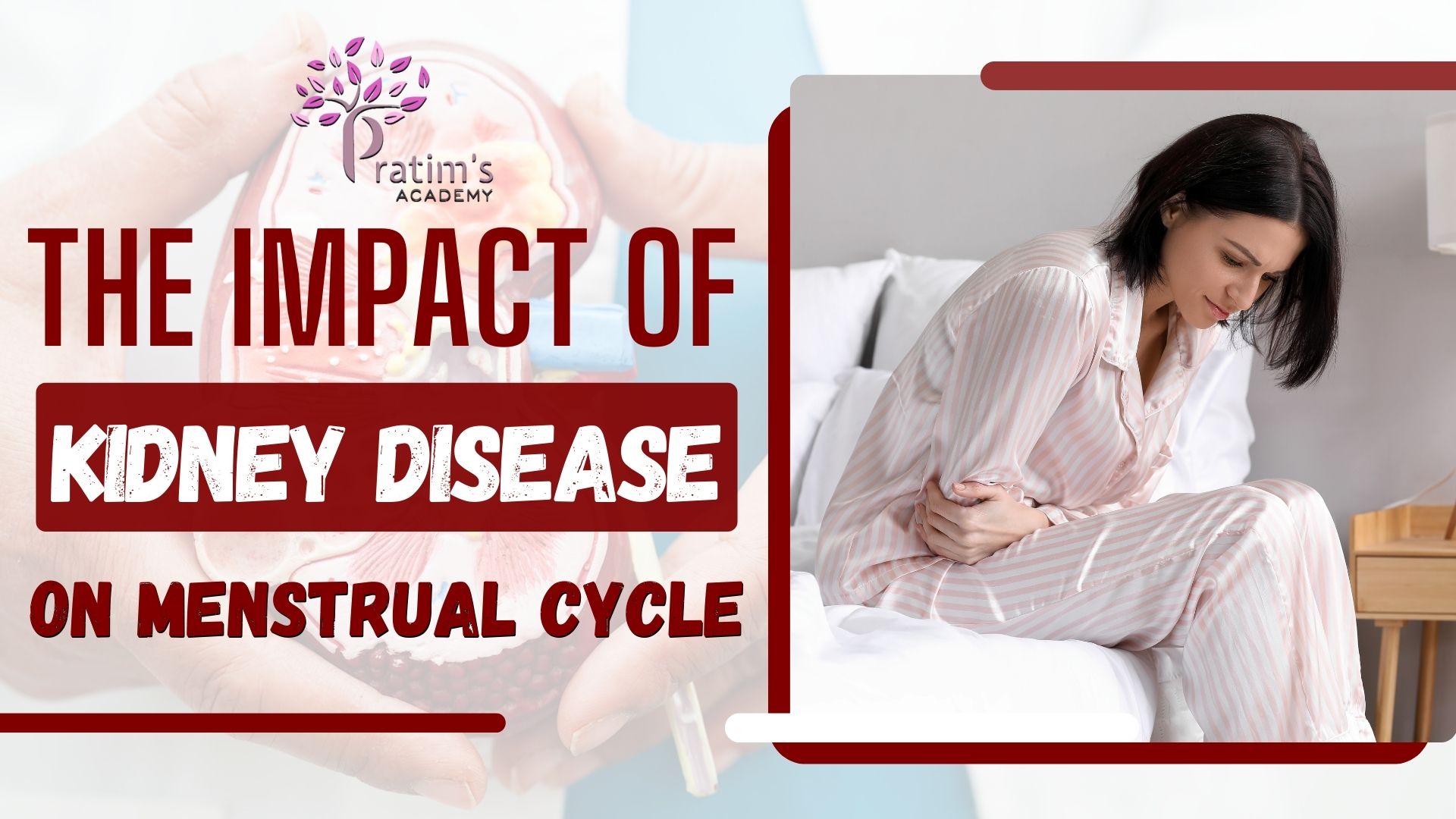The Impact of Kidney Disease on Menstrual Cycle:
The menstrual cycle serves as an important reflection of overall health for individuals assigned female at birth. It is not only indicative of reproductive health but also reveals insights into the functioning of various bodily systems, including the kidneys. Chronic kidney disease (CKD), which progressively compromises kidney function, can have a substantial impact on the menstrual cycle. Recognizing this relationship is crucial for prompt identification, treatment, and ongoing management.
Hormonal Disorders Linked to Kidney Function
- Hormonal Imbalances: Healthy kidneys are essential for the regulation of hormones that influence the menstrual cycle, including hormones from the adrenal glands. In cases of chronic kidney disease (CKD), impaired kidney function can disrupt these hormone levels, potentially leading to irregular menstrual periods or even missed periods altogether (amenorrhea).
- Effects on Reproductive Hormones: The kidney acts as a key regulator for maintaining the balance of key reproductive hormones like estrogen and progesterone. When kidney function falls below 20% of its normal capacity, a woman’s chances of becoming pregnant significantly decrease. This decline is important to note, as dialysis does not fully substitute for all the vital functions performed by healthy kidneys. As a result, this can affect egg production and lead to irregularities in menstrual cycles. CKD can interfere with the communication between the brain, ovaries, and kidneys, resulting in irregular ovulation or a complete lack of ovulation (anovulation).
- Anemia and Its Consequences: A common consequence of CKD is anemia, which occurs due to decreased production of erythropoietin hormone necessary for red blood cell production that is generated by the kidneys. This condition can lead to menstrual cycle problems (menorrhagia) and can worsen feelings of fatigue during menstruation.
- End-Stage Kidney Disease and Early Menopause: Women facing end-stage renal disease (ESRD) frequently encounter early menopause. The demands of dialysis, along with the overall stress on the body, can contribute to decreased fertility and alterations in the menstrual cycle.
Symptoms
For individuals with chronic kidney disease (CKD) or those at risk, monitoring changes in your menstrual cycle is important. Be aware of the following alterations: –
- Irregular cycles
- Heavy bleeding
- Missed periods
- Severe premenstrual symptoms
These changes could indicate possible hormonal issues or broader systemic concerns related to kidney function.
Managing Menstrual Health with Chronic Kidney Disease
- Regular Medical Assessments: For individuals with chronic kidney disease (CKD), consistent visits to both a nephrologist and a gynecologist are crucial. Keeping track of kidney performance and hormone levels plays a significant role in effectively managing symptoms.
- Dietary Choices and Lifestyle: Following a kidney-friendly diet and maintaining adequate hydration are vital components of care. Including iron-rich foods and considering supplements may help alleviate issues related to anemia.
- Medications and Treatment Options: In some cases, hormone therapy or other medications to control menstrual cycle problems may be required. Your healthcare provider will customize treatment plans according to your kidney health status.
- Addressing Fertility Issues: For those considering pregnancy, it’s important to seek advice from a specialist. CKD can create hurdles regarding fertility, but proactive planning and intervention can enhance the chances of positive outcomes. CKD affects the menstrual cycle promoting difficulties to conceive.
Preventive Measures and Education
So, ‘Better safe than sorry‘. Kidney disease can frequently be avoided by making healthy lifestyle choices. This includes eating a balanced diet, keeping blood pressure in check, and effectively managing diabetes. Identifying chronic kidney disease (CKD) at an early stage can help reduce its effects on menstrual health and overall wellness.
Conclusion
The relationship between kidney function and the menstrual cycle underscores the significance of comprehensive healthcare. If you experience alterations in your menstrual cycle, it’s important to consult a healthcare professional; these changes might provide insights into your overall health, including the condition of your kidneys.
References




